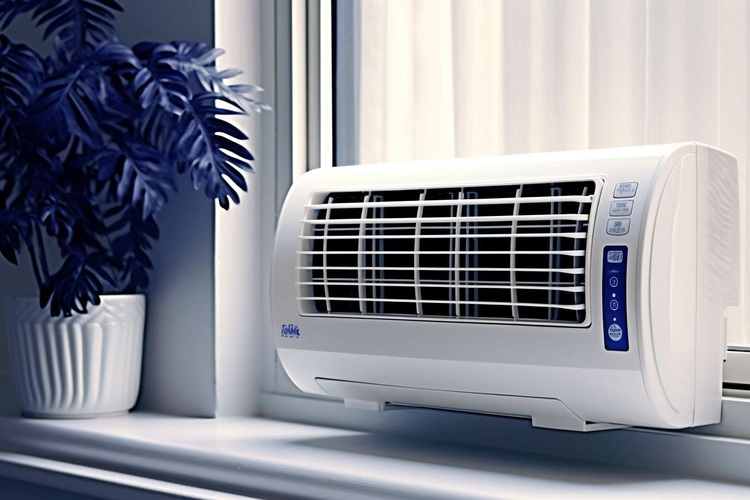Keeping Your Cool: Understanding Air Conditioning for Homes and Apartments
Air conditioning has become an essential part of modern living, providing comfort and relief from sweltering temperatures. Whether you live in a spacious house or a cozy apartment, understanding how air conditioning works and its benefits can help you make informed decisions about cooling your indoor space. This article will explore the basics of air conditioning, its importance in homes and apartments, and how to choose the right system for your needs.

Why is air conditioning important for homes and apartments?
Air conditioning plays a crucial role in maintaining a comfortable living environment, especially during hot summer months. Beyond just cooling, air conditioners offer several benefits:
-
Temperature control: Air conditioners allow you to set and maintain a consistent, comfortable temperature in your home or apartment.
-
Humidity reduction: By removing excess moisture from the air, air conditioners help prevent mold growth and improve overall air quality.
-
Improved air quality: Many modern air conditioners include filters that can remove dust, allergens, and other particles from the air, benefiting those with allergies or respiratory issues.
-
Better sleep: A cool, comfortable environment promotes better sleep quality, which is essential for overall health and well-being.
-
Protection for electronics: Excessive heat and humidity can damage electronic devices. Air conditioning helps protect your valuable equipment.
What types of air conditioners are suitable for homes and apartments?
Several types of air conditioning systems are available, each suited to different living spaces and cooling needs:
-
Central air conditioning: Ideal for larger homes, this system cools the entire house through a network of ducts and vents.
-
Window units: These self-contained units are installed in window openings and are suitable for cooling single rooms or small apartments.
-
Portable air conditioners: These freestanding units can be moved from room to room and are a good option for renters or those who can’t install permanent systems.
-
Split systems: Consisting of an outdoor compressor unit and one or more indoor air handlers, these systems offer efficient cooling without the need for ductwork.
-
Ductless mini-split systems: Similar to split systems but more compact, these are excellent for apartments or homes without existing ductwork.
How can you choose the right air conditioner for your space?
Selecting the appropriate air conditioning system depends on several factors:
-
Size of the space: The cooling capacity of an air conditioner is measured in BTUs (British Thermal Units). Larger spaces require higher BTU ratings.
-
Energy efficiency: Look for ENERGY STAR certified models, which consume less electricity and can help reduce your energy bills.
-
Installation requirements: Consider whether you can install a permanent system or if you need a portable or window unit due to rental restrictions or building limitations.
-
Budget: Factor in both the initial cost of the unit and long-term operating expenses when making your decision.
-
Climate: If you live in a humid area, choose a model with good dehumidification capabilities.
What are some energy-efficient cooling strategies for homes and apartments?
While air conditioning is effective, there are additional strategies to enhance cooling efficiency and reduce energy consumption:
-
Proper insulation: Ensure your home or apartment is well-insulated to prevent cool air from escaping.
-
Use of fans: Ceiling or portable fans can help circulate cool air and create a wind-chill effect, making the room feel cooler.
-
Strategic shading: Use blinds, curtains, or exterior shades to block direct sunlight and reduce heat gain.
-
Regular maintenance: Keep your air conditioner in top condition by cleaning or replacing filters regularly and scheduling professional maintenance.
-
Programmable thermostats: These allow you to set different temperatures for different times of the day, optimizing energy use.
How can you maintain your air conditioner for optimal performance?
Proper maintenance is key to ensuring your air conditioner operates efficiently and has a long lifespan:
-
Clean or replace filters monthly during heavy use periods.
-
Keep the outdoor unit free from debris and vegetation.
-
Clean the evaporator and condenser coils annually.
-
Check and straighten the fins on the outdoor unit to ensure proper airflow.
-
Schedule professional maintenance at least once a year, preferably before the start of the cooling season.
In conclusion, air conditioning is a valuable asset for maintaining comfort in homes and apartments. By understanding the different types of systems available, choosing the right unit for your space, and implementing energy-efficient strategies, you can enjoy a cool, comfortable indoor environment while minimizing energy consumption. Regular maintenance of your air conditioner will ensure it continues to perform optimally, providing reliable cooling for years to come.






